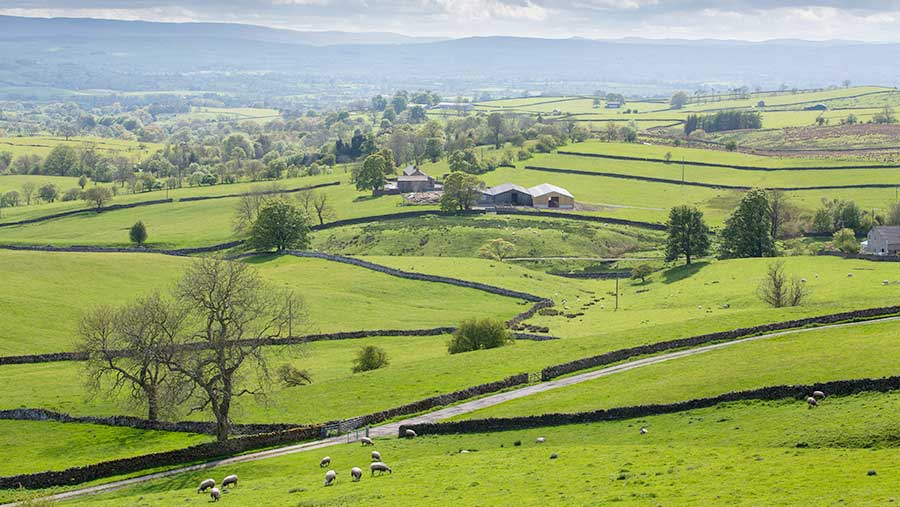TFA proposes ‘radical’ three-pillar post-Brexit support plan
 © Tim Scrivener
© Tim Scrivener The Tenant Farmers Association (TFA) has suggested a “radical” shake-up of farm payments in a post-Brexit era, with a proposal for a new three-pillar system.
The TFA published a draft plan for farming and agricultural policy in the event that the UK voted to leave the EU ahead of the referendum on 23 June.
Now the association has set out its case for how it believes the UK government and devolved administrations should spend the approximate £3bn of farm support the Treasury should provide to replace the common agricultural policy (CAP).
The three pillars would attract an “equal share of funding”, split between an agri-environment scheme, an infrastructural grant scheme to encourage the development of farm businesses, and public funding to develop and promote British food both at home and abroad.
See also: TFA offers £3bn blueprint for farming post-Brexit
But significantly, the proposal would see the abolition of direct support on all farms, which the TFA described as a “radical solution”. But it argued the three pillars “would provide a firm base for the success of British agriculture”.
TFA national chairman Stephen Wyrill said: “We should retain the current budget and spend it through three new pillars.
“First, one to create a properly constituted, outcome-focused agri-environment scheme that properly rewards individuals for environmental management.
“Second, there should be an infrastructural grant scheme to encourage the development of farm businesses, taking into account economic, social and environmental resilience.
“Third, a pillar using public funding to promote British farm products, fund near market research, develop public procurement of British food and promote import substitution, while finding beneficial export markets for our farm products.”
The TFA will be promoting its post-Brexit agricultural policy at the Great Yorkshire Show in Harrogate on Wednesday (13 July).
Produced in April and adjusted in light of the referendum result, the TFA’s policy envisages a radical change in the way that British farming should be supported.
Back British food
Some of the suggested policies include: public food procurement policies that favour British-produced food, and more powers for the supermarket ombudsman to investigate malpractice in the food supply chain.
Other TFA policy proposals include: mandatory country-of-origin labelling on all food, a requirement that all food sold in the UK meets Red Tractor standards and negotiation of fair-access agreements for UK farm products sold into EU markets.
On trade, the TFA said it was essential that the UK government appointed highly skilled negotiators within the civil service to assist the industry in having fair access to overseas markets for agricultural products.
“While we await the appointment of the next prime minister and cabinet, there is much that can be done to develop the groundwork on a new policy framework for agriculture and the TFA is fully engaged in making this a reality,” added Mr Wyrill.
Three pillars scheme
- A new agri-environment scheme, which sets out a menu of costed options that farmers can choose from to deliver on their farms and is judged on the basis of outcomes, to include options for hill and upland farmers focusing on ruminant livestock production.
- A Farm Business Development Scheme to provide annual grants of up to £25,000 a farm a year to assist with the implementation of approved five-year plans for farm development.
- A package of near market research and development, technology transfer, promotion, market development, brand development and other supply chain initiatives focused on supporting British-produced food.
(Source: TFA)
* The TFA would welcome comments and thoughts from anyone on its suggestions for a post-Brexit agricultural policy. Please email George Dunn at george@tfa.org.uk or telephone 0118 930 6130.
